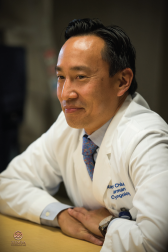 Growing up in a non–gun-carrying household, I never gave much thought to gun laws. And when the occasional public shooting arose, I was never personally affected. Other than sympathizing with the victims and their families, I never gave it much thought after the initial event.
Growing up in a non–gun-carrying household, I never gave much thought to gun laws. And when the occasional public shooting arose, I was never personally affected. Other than sympathizing with the victims and their families, I never gave it much thought after the initial event.
Explore This Issue
April 2018This all changed in 2011.
I moved to Tucson, Arizona in the fall of 2010, and down the road from my house was our neighborhood grocery store, dry cleaner, and the take-out restaurant that we frequented on a weekly basis. On January 2011, Congresswoman Gabrielle Giffords was shot, and six innocent bystanders, including a nine-year-old girl, were killed by a deranged gunman at a public event outside of the grocery store. Working at the hospital that treated the victims, I was often overwhelmed by the sadness of the victims and their families. This had become personal to me. I saw my neighbors lose a good friend, and I began worrying about my kids going to school next door to the shopping center. Each time I visited that same shopping center, I felt a little less safe and was always hit with a note of sadness. Because it hit me personally, I now pay much closer attention to the debate around gun laws. I am sensitive to the feelings of the victims and am quick to donate to relief funds, such as the recent one for Marjory Stoneman Douglas High School.
Why is it that an issue that affects and hurts so many people has to become personal before we care about it? Whether it is someone’s sexuality, natural disasters, race, or your local community hot topic—often we don’t engage unless it has a direct effect on us. As physicians, we are held to a higher moral standard. We should be more sensitive to the things that cause pain and suffering. We are trained to treat our patients as if they were our sister, husband, or mother. We often take their issues personally and do our best to give them an optimal outcome.
So when our colleagues, mentors, mentees, and friends have been unfairly treated, we all need to pay attention and take it personally. This month’s cover story focuses on the unfair treatment that many women otolaryngologists have had to endure. I am sure many of us male otolaryngologists have been guilty of perpetuating this behavior at some point in our career. And although I would like to think that I have never made an inappropriate comment or willingly put together a “manel” at a meeting, I have spent time reflecting on this and am making sure I am aware of and sensitive to these issues moving forward. We know this topic is uncomfortable to talk about, and some may not want to read about it since it doesn’t affect them personally. We hope you will.